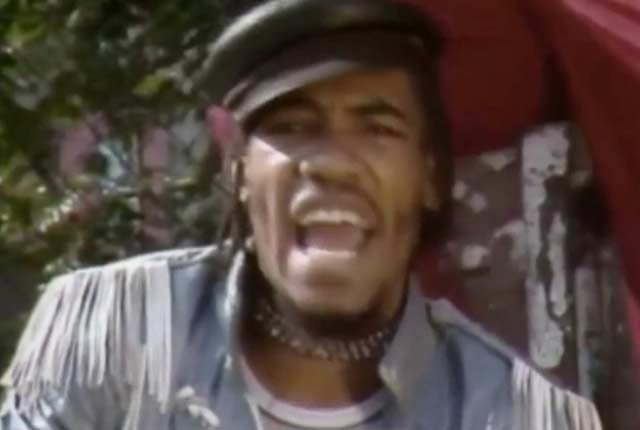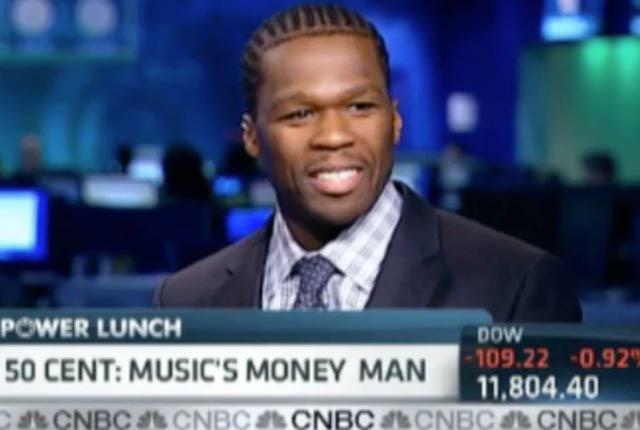“In retrospect the game ain’t the same maine / The heart and soul is divided / They ramshack the music no control up inside it / Now look at this it’s all stretched out and nasty / But lettin’ money pass me / I doubt that / And niggas from the bottom know / Pumpin’ hard / Wind sleet hail rain or snow…” –Q-Tip, “You Can’t Handle The Torch,” by Busta Rhymes feat. Q-Tip.
It’s tough being both an ’88 baby and a fan of Hip Hop. Too young to understand the social experiences of pioneers like Rakim and KRS-One and too old to digest the lyrical sentiments of relative newcomers like Soulja Boy and Lil B, I land smack dab in the middle of a cultural movement that evolved just as I was beginning to recognize its significance. It is impossible for me to remember the issues that galvanized the boisterous call for Hip Hop, which reflected the woes of the working (and non-working) American. But what I do remember is the fatal battle between the East and the West coasts, the miseducation of one Fugees first lady, the bold emergence of a white rapper who would soon change the game, and of course, shiny bright puff jackets. But there is one thing that stands out to me most about those days: artists relied heavily on platinum album sales to maintain their careers. Obviously, that has changed.
Today’s meager record sales no longer support lavish lifestyles and often times don’t give artists the opportunity to break even. Trading riches for intangible wealth, today’s successful rapper must possess a business savvy rivaling that of some of the world’s most experienced entrepreneurs. It’s not enough for rappers just to rap anymore—they have to make lucrative Vitamin Water deals, own 40/40 clubs and stakes in sports teams, land Ciroc sponsorships, and become New York Times bestsellers.

AD LOADING...
Hip Hop artists have become Hip Hop moguls, breaking free from the limitations of music and breaking into a space where they can control the terms and profits of their work. However, this overall shift from a focus on music to a focus on capital not only affects the music industry itself, but also results in a disconnect between Hip Hop artists and the people who listen to their music. As the average American suffers the brunt of unemployment, debt, and decreasing access to education, Hip Hop lyrics continue to bask in a world of expensive whips, vacations in Paris, and frivolously spent resources. The divide between lyrics and reality has been swimming quietly under the surface for a long time, but the Occupy Wall Street movement has forced this divide to be seriously scrutinized and for those who grew up on Hip Hop to wonder when rappers went from fighting the Powers That Be, to becoming the Powers That Be.
Hip Hop And The Occupy Wall Street Movements
“They say get a job, you can think and grow rich / But what are you to do when a dollar ain’t worth shit / And the jobs ain’t hirin’ and unemployment is gone / They gonna repo your car and foreclose your home / The banks got bailed out but we still suffering / So I got a gun ‘cause I done had enough of ‘em.” –Killer Mike, “Burn.”

AD LOADING...
The social environment that gave birth to Occupy Wall Street is the same one that birthed Hip Hop. At their core, both movements lend a voice to the ignored and forgotten and boldly call for an end to a system built to keep the top 1% at the top. In a country where the top 400 richest Americans own more wealth than that of the combined bottom 150 million Americans, it is only expected that anger would come boiling to the surface. Both movements were first rejected by the mainstream and disregarded as fads, then feared because of their rapid growth, subsequently denounced as harmful to American society, and finally marketed and sold by the corporate world.
Just as early Hip Hop’s activist leanings stemmed from dire situations of life, death, and genuine anger, Occupy Wall Street holds the fury of an incensed American population. Grandmaster Flash and the Furious Five’s 1982 classic, “The Message,” will forever be my prime standard of early Hip Hop’s vivid portrait of a neglected poor and middle class, and is a striking realization that after 30 years, we have yet to escape the pressures of car repossession, bill collectors, and stress. But for the first time since “The Message” was released, Hip Hop has gained some of its own “richest Americans,” whose ascendance to the 1% has put them in direct opposition with a majority that they used to be members of.

The Dilemma Of The Hip Hop Mogul
“We as rappers must decide what’s most important / And I can’t help the poor if I’m one of them / So I got rich and gave back to me that’s the win-win / So next time you see the homie and his rims spin / Just know my mind is workin’ just like them / Rims that is…” –Jay-Z, “Moment of Clarity.”

AD LOADING...
Although Hip Hop and the Occupy Wall Street movement are fundamentally intertwined in their principles, the relationship between Hip Hop businessmen and Occupy Wall Street is not only strained, but also a paradox. For example, when Jay-Z began selling “Occupy All Streets” T-shirts on Rocawear.com in what he claimed was an effort to bolster awareness for the movement, critics questioned whether the $22 shirts were meant to help the Occupy movement, or to capitalize from it. Jay’s overreaching business scheme exposed a glaring difference between him and protesters and represented an ideological shift that aligned him with the corporate elite and swiftly booted him from the 99%.
But, as a lot of the folks in our comments section demanded to know, what is so terrible about profiting from a good business deal? After all, the rapper’s narrative is based on social mobility: an aspiring emcee from the tough streets of insert-city-here works hard, signs a record deal, becomes a household name, and grasps the ability to financially support friends and family. Or as USC professor Christopher Holmes Smith put it in his essay I Don’t Like to Dream About Getting Paid, “the mogul is a self-made aristocrat, a former member of the underclass who’s raised himself up from its ranks and seized his chance to shine.” While this type of come up is praised in Hip Hop, what happens when a rapper uses his influence to profit from the community?
Therein lies the problem for Hip Hop moguls. Having climbed from the bottom to the top, they identify with the poor and ignored, but experience the daily pressures of the corporate rat race. It can even be argued that some have lost touch with the 99%, more caught up in the everyday hustle of maintaining wealth. Smith writes, “As self-made men, moguls are not inclined to wait around for social intervention; they spot available opportunities for material advancement and seize them as best they can. They simply want people to get out of their way and let them handle their business.” No one can say for sure what Jay-Z’s motives were behind his “Occupy All Streets” T-shirts, but honestly, his intentions don’t matter. What matters is how his actions were perceived by a rapidly growing slice of America fed up with what they deem as corporate greed.

AD LOADING...
So does that mean that all rappers should be against business? The short answer is no. Longtime Hip Hop mogul Russell Simmons recently defended Jay-Z, reminding protesters and Occupy observers that the movement does not target business, but the influence of lobbyists and corporations on American policy.
“You should sell things you’re happy about,” Simmons told Billboard magazine. “You should sell products that you’re inspired by, that promote lasting and stable well-being. Give the world something or sell the world something that you’re proud of. Jay-Z didn’t make a T-shirt [that said] ‘Fuck the Bums on the Street.’ He wrote a T-shirt, ‘Occupy All Streets’ – I’m happy, it furthers the movement, it inspires the movement.” But despite Simmons’ frequent appearances supporting Occupy protests across America—including offers to pay for Zuccotti Park clean up—his presence has been received ambiguously. Both welcomed with open arms and heckled, Simmons shines a light on the fact that the Occupy movement is also unsure of how to integrate eager-to-help moguls and businessmen into their cause.
Simmons has been active within Occupy, but some Hip Hop businessmen have kept inconspicuously quiet. Diddy, who Forbespredicted to be the next Hip Hop billionaire, has been uncharacteristically tight-lipped about his feelings towards the protests. And while Diddy has been close-mouthed, Kanye West showed up to a protest in New York and literally didn’t say anything. One protester told Rollingout.com that he would like to see artists become more vocal:

AD LOADING...
“The Jay-Z’s, the P. Diddy’s, the Kanye Wests, the Lil Waynes need to step up to the plate and make their voices heard and never mind all that bling-bling. Get out here with your people and take this [Occupy Wall Street protest] to the next level. Never mind hanging out with the Nets, the Mets, and the mayor [Michael Bloomberg].”
Conscious Capitalism
So how do Hip Hop moguls and Occupy Wall Street meet in the middle? Along with Lupe Fiasco, Immortal Technique, David Banner, and a handful of others, 50 Cent has surprisingly been one of the loudest rappers giving his uncensored opinions about the civic role of Hip Hop artists, and celebrities in general, to Occupy Wall Street. In an interview with CNBC’s “Power Lunch,” 50 described how he’s utilized the One for One model made popular by TOMS shoes. Under this model, any time a product is purchased, the company donates a resource to a community in need. In August, Fif launched his Street King mission, which provides a meal for a starving child whenever one of his Street King energy drinks is purchased. The business venture aims to feed one billion children. “Conscious capitalism,” he called it. “I’m not against business. I’m pro-business,” he explained. “I’m an entrepreneur. I just think that we can also be conscious about the necessities for all humans on Earth and try to do things to make it a better place.”

While 50 is by no means the face of Conscious Capitalism, in the context of Hip Hop, he may be onto something. How would Jay-Z’s All Streets T-shirts have been received had he donated a portion of the proceeds to the Occupy movement? Or perhaps offered amenities to protesters based on sales of the T-shirts. Lacking the foresight for the inevitable backlash as well as the initiative to make both a profit and a difference, Jay’s All Streets blunder highlights that some businessmen have completely missed the point of Occupy as well as the source of protesters’ anger.

AD LOADING...
But it’s no huge surprise that socially mobile moguls have struggled to find their niche in the movement. While some have tried, succeeded, made mistakes, or failed, others have checked out of the movement completely, proving that while some Hip Hop businessmen may have 99 problems, being part of the 99% isn’t one of them.
Salima Koroma has been a HipHopDX News writer since 2008. A native of Sacramento, California, Salima has worked for U.C.L.A.’s Daily Bruin and Current TV. You can follow her on Twitter (@SalimaKoroma)




![Lil Tay Calls Out Jojo Siwa: 'If You Have Something [To] Say About Me, Say It'](https://static.hiphopdx.com/2024/04/lil-tay-calls-out-jojo-siwa-250x142.jpg)
